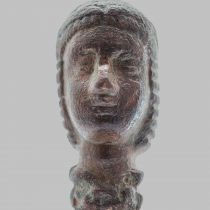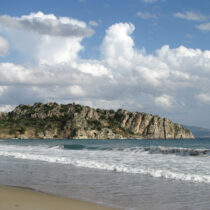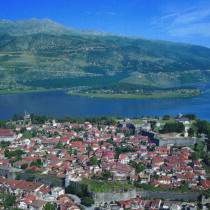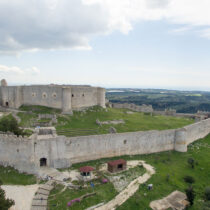University’s papyrus fragment part of an ancient puzzle
Jacco Dieleman, a research associate professor in the Department of Semitic and Egyptian Languages, recently made a startling discovery while examining artifacts housed within Catholic University’s Semitics/ICOR collections.
Earth’s early transformation through land use
Humans caused significant environmental change around the globe by about 3,000-4,000 years ago, much earlier than prior estimates, as revealed by a new international study.
Heritage, Terroir and Community
The organisers welcome proposals for presentations that examine food and drink in the context of heritage, terroir and conflict.
CHS Fellowships in Hellenic Studies 2020-21
The Center for Hellenic Studies (CHS) offers fellowship opportunities for the 2020-21 academic year.
ECE IX Call for Papers
The conference will be held from the 22nd to the 27th of June, 2020 in Trieste, Italy.
Mellon Postdoctoral Fellowship in postcolonial approaches to Classics
Cornell’s Classics Department seeks a postdoctoral fellow whose work, while addressing any area of classics as broadly defined, engages with critical race or postcolonial theory in a sustained and meaningful way.
Call for Lightning Papers: DC 2020 Classics and Civic Activism
The Classics & Social Justice Affiliated Group has organized a workshop on the subject of Classics and Civic Activism for the upcoming AIA/SCS meeting.
North America was inhabited over a thousand years earlier than believed
Artefacts unearthed from an archaeological dig in western Idaho suggest that people lived in the area more than a thousand years earlier than scientists previously thought.
One-legged skeleton found in Russia could be Napoleon’s favourite general
Archaeologists believe that a one-legged skeleton found in Russia a few weeks ago could be the remains of Napoleon's favourite general.
Weather conditions allow for new footage of HMS Terror
Weather conditions have allowed marine archaeologists to get new footage from HMS Terror, including much of a lower deck interior.
Ancient synagogue mosaic floor in need of conservation
The preservation of an ancient synagogue mosaic floor dating to the 4th century BC is the focus of the joint efforts by a private initiative and the Greek Ministry of Culture and Sports.
Greece asks Louvre to lend Parthenon frieze for temporary exhibition
Greece has asked France to lend a marble frieze, part of the Louvre collection, removed from the temple of Parthenon in Athens.
Socio-political power reflected in elaborate prehistoric burials
Elaborate burial sites can provide insight to the development of socio-political hierarchies in early human communities, according to a new study.
Skulls from Asia show ancient migration route to Australia
Human remains discovered on Alor island in Indonesia offer new insight into human migration through Southeast Asia thousands of years ago
Drought reveals megalithic standing stones in reservoir
A circle of megalithic standing stones in Spain, covered by water for the creation of a reservoir, have again surfaced due to heavy drought this year.
Cranes were used for Greek temple constructions earlier than previously believed
New research demonstrates how forerunners to the lifting machine were experimented with as early as 700-650 B.C. for the construction of Greek temples.
Standard weights and measures were used in prehistoric northwestern Europe
People in England were using balance weights and scales to measure the value of materials as early as the late second and early first millennia BC.
Medieval skeleton’s contested identity is re-examined
Researchers identify the story of a skeleton used as a propaganda tool by the Nazis and Soviets during the Second World War and Cold War.
The Vikings found Irish population already in decline
New research has found that the population of Ireland was in decline for almost 200 years before the Vikings settled.
Prehistoric boat building platform found underwater
Researchers have discovered a new 8,000 year old structure next to what is believed to be the oldest boat building site in the world on the Isle of Wight. The discovery was made by the Maritime Archaeological Trust while working on
Rare Pictish carved stone found in the Highlands
Archaeologists in Scotland have discovered a rare 1,200-year-old Pictish carved stone that could be a cross slab.
Excavations in Cyprus yield Chalcolithic and Early Bronze Age findings
Findings from this season's excavations in Cyprus offer an insight to the transition of the inhabitants' lifestyle from the Chalcolithic into the Early Cypriot Bronze Age.
Artist’s drawings found under famous Da Vinci painting
Two different drawings of the Virgin of the Rocks by Leonardo da Vinci lying beneath the painting have been revealed with the use of cutting edge imaging techniques.




























